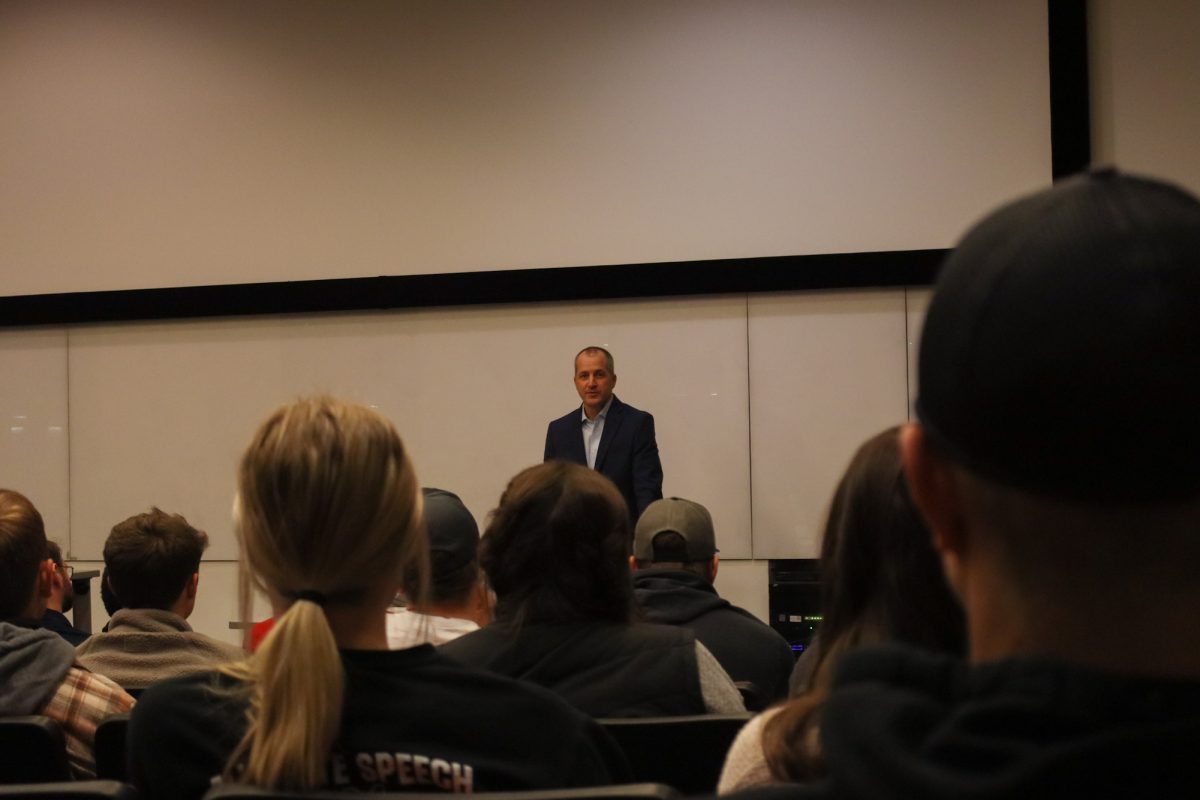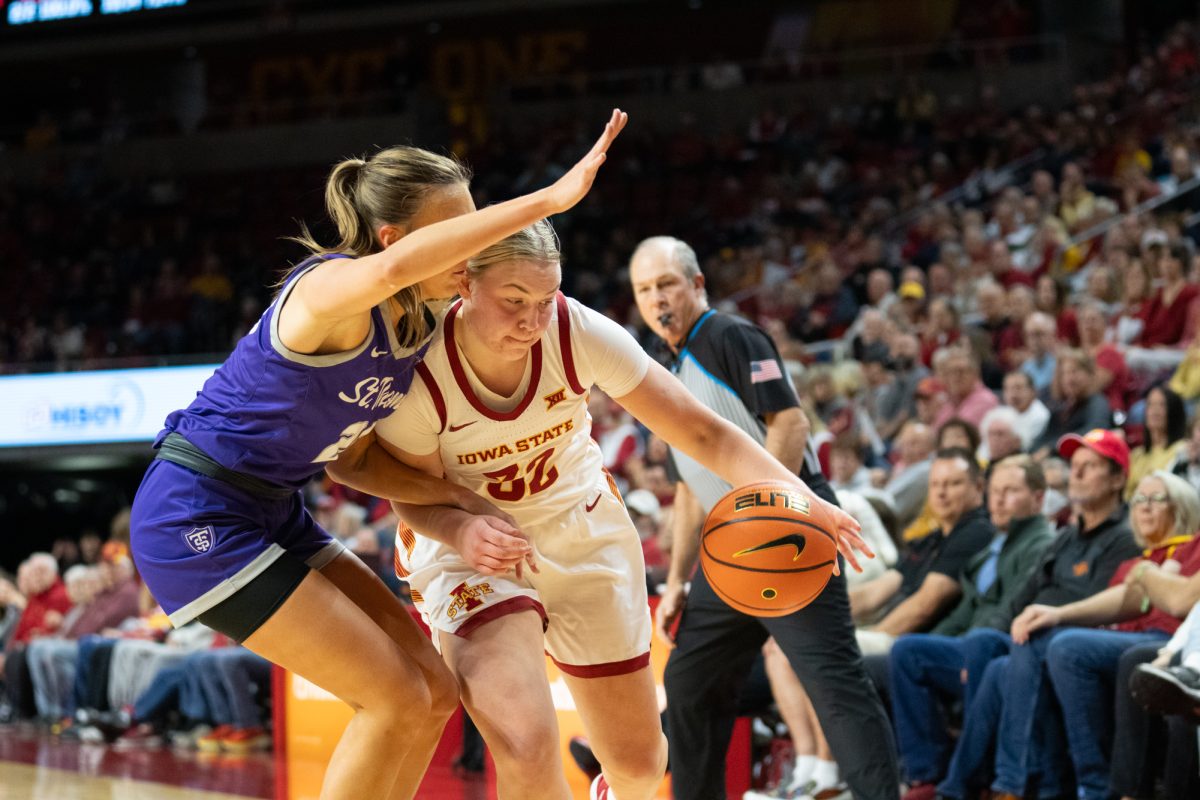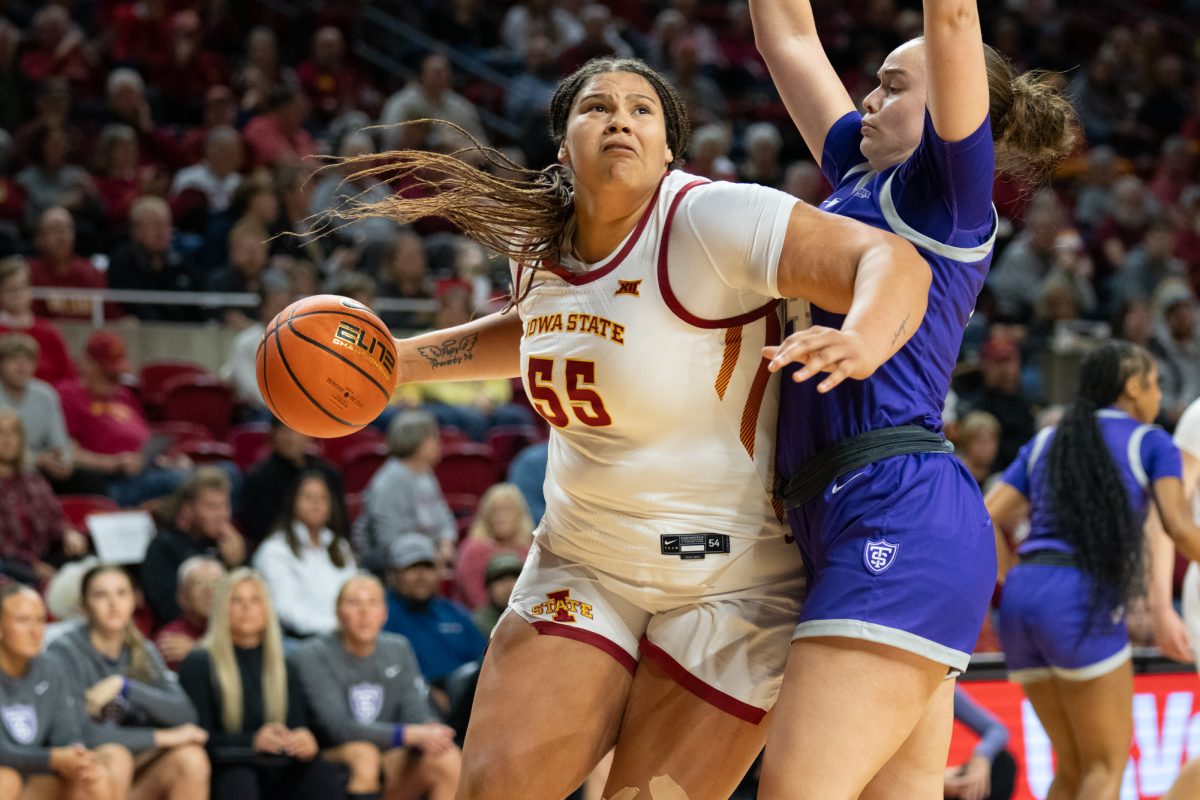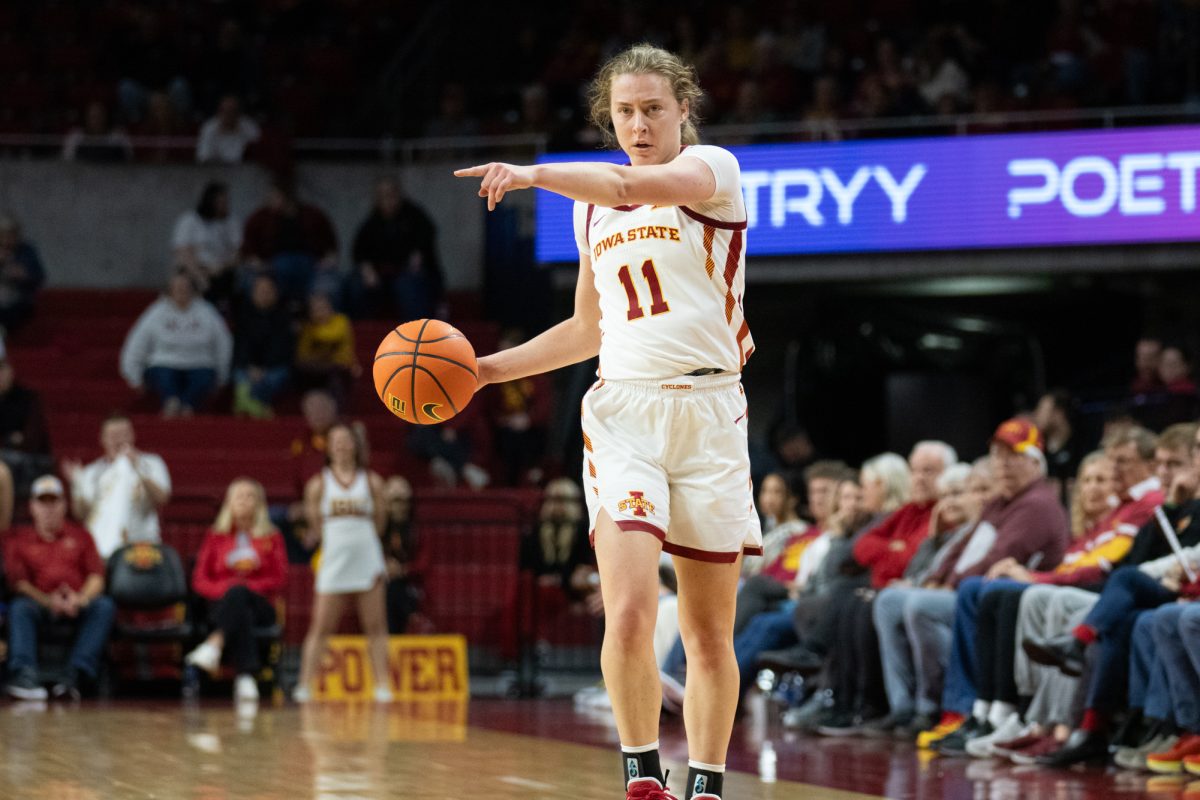Note-taking service hits ISU campus by storm
September 15, 1996
A so-called “breakthrough in educational technology” may change the way undergraduates study throughout their college careers.
But while many students may approve of the new “time saver,” many Iowa State faculty members are not happy.
Notes, a note-taking service created for undergraduate students, will offer notes for about 55 classes during the fall semester.
Edwin Lewis, associate provost, said there is no policy restricting such a service. If a student is registered for a course, the university has no control over what the student does with his or her notes, even if that includes selling them for money.
“We certainly wouldn’t endorse it, but in general, it is ill-advised for any student to work off of someone else’s notes. I’m not sure if it adds anything. My major concern is that students may be using it to their detriment.”
Notes, located at 111 Lynn Ave., flourished at the University of Iowa two years ago. The franchise’s co-owners, James Chung and Ronald Moore, Jr., decided to move to Ames this summer. Chung and Moore, both graduates of Penn State University, used questionnaires and canvassed door-to-door to determine if there was indeed a market at ISU.
Since the service is still in its infancy on campus, Chung said there are not a lot of students who are aware that the service exists. He said it took about a year for the service to catch on at the U of I. However, there are already about 50 students from various majors who are ready and waiting to provide assistance to those who need it.
Notes are priced at $2.50 per lecture and can also be purchased in advance at $28 for the semester. So far, Chung admits, “We haven’t made a penny. . .”
But word of mouth from satisfied customers and advertising should inform students that there is help available, he said.
Some who hear about such a service may initially be skeptical, Chung admits. But he insists that this is a legitimate service for serious students who truly want to increase their chances of getting good grades.
“We are only here as a supplement. We do not encourage people to skip class. There are going to be students who will abuse the service, but we can’t do anything about that. We can’t make people go to class. The professors can’t even do that.”
Sheila Barnes, a freshman in liberal arts & sciences said, “I would probably use it, because you can pay closer attention in class and learn more. In most of my classes attendance is required, but for bigger classes getting notes could be useful because I tend to get behind on my reading.”
In regard to the price, Barnes said it’s a little steep. “That’s a lot of money for one class, but right now, I have no reason to use them.”
Sarah Brapzel, a junior in art and design, agrees. “I think it’s a good idea, but it’s expensive. Most of my classes aren’t large lecture classes, and they always take attendance.”
Kathleen MacKay, dean of students, admits that while the concept of a note-taking service is a worthwhile one, she hopes that students who make use of the service are going to do the right thing.
“My concern is that it will encourage students not to go to class.
“There are students who will use it for the right reason, but students can learn so much more when they go to class,” she said.
Chung stressed that the business primarily targets students with disabilities and student-athletes. Those students will be offered discounts.
But ISU already provides accommodations for students with disabilities, as well as tutoring services, which are available at no cost to many students, including athletes.
MacKay added that since the price of the notes is relatively high, students who have less money are not going to be able to afford such assistance, and that it wouldn’t be fair to them.
“It may be taking advantage of students with vulnerabilities.”
Note-takers must have at least a 3.2 grade point average to be considered for employment. There are usually at least two students taking notes for larger classes with more advanced material.
“With our service, students will not only be able to prepare for exams with the text and their own notes, but will have access to another version of the lecture, material typed and organized by an honor student,” Chung said.
Students also have the option of comparing the notes to their own before purchasing them. Chung is confident that the service will not jeopardize the educational process in any way.
“If a professor complains that class attendance is dropping, we drop the class from our list.”






